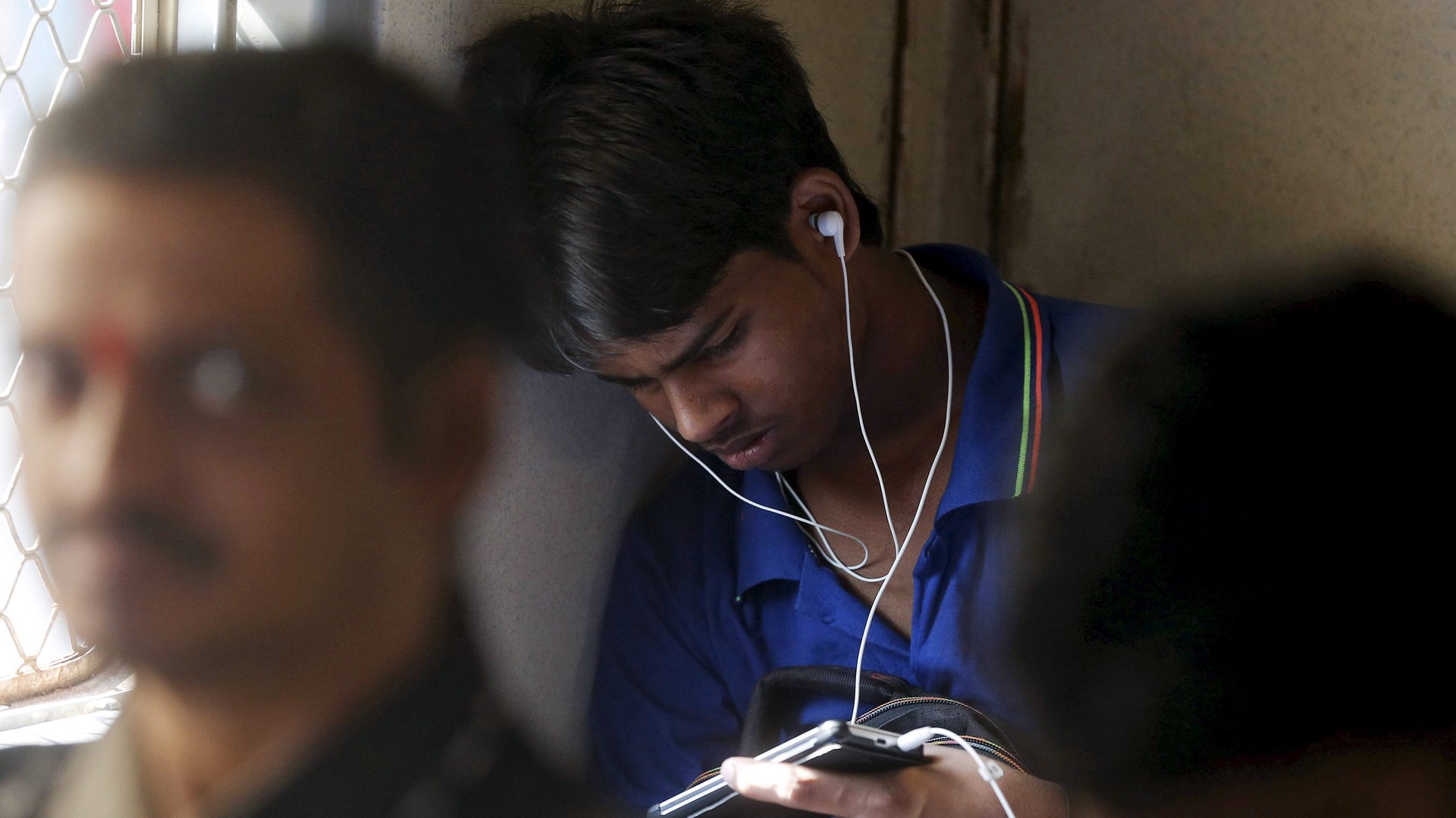A new government regulation could halt the streaming services dream run in India
Digital streaming platforms have had a dream run in India. But that might soon change.


Digital streaming platforms have had a dream run in India. But that might soon change.
The Indian government yesterday (Nov. 11) announced that all digital news, audio, and visual content platforms would now be under the information & broadcasting (I&B) ministry’s jurisdiction. So far, over-the-top (OTT) platforms such as Netflix, Amazon Prime, and Disney+ Hostar were under the purview of India’s information technology and electronics ministry.
This change may seem like a technicality but raises concerns over censorship in the name of content regulation. “The new notification will have a major impact on the OTT business in India, as prior to this content hosting platforms/intermediaries were not required to adhere to any certification standards or quotes, or come under the scrutiny of any government body,” said Kazim Rizvi, founding director of The Dialogue, a New Delhi-based public policy think tank.
For now, though, the official government notification only grants the I&B ministry administrative jurisdiction over digital platforms. But observers worry that the change in jurisdiction could be an ominous sign of things to come.
These concerns also emerge from the growing clamour to regulate content on streaming platforms over the past couple of years. The Indian government, too, has been mulling over instituting a self-regulation code for OTT platforms.
The government has also said it does not want to regulate online content, but, at the same time, has expressed the need to have regulatory controls. “There is no doubt that this development could increase censorship and affect creativity for which these streaming services were earlier lauded. It is worth mentioning here that this notification has come in the backdrop of a recent notification of Telecom Regulatory Authority of India, where they did not feel the need to regulate OTT platforms,” Rizvi said.
The new ministry jurisdiction could change the way OTT platforms have created and marketed content thus far.
The bold new world of streaming services
The OTT business in India, which is less than five years old, pushed the envelope in terms of creating bold content. Without the pressure of certification from India’s central board of film certification—colloquially called the censor board—originals on Netflix and Amazon Prime, for instance, could escape the snip when it came to violence, nudity, and coarse language.
For creators, it has been exciting to put forth a narrative and experiment with the medium, creative freedom that is significantly curbed while making mainstream Bollywood films. “It is refreshing as a filmmaker to not have censorship on OTT platforms,” Bollywood filmmaker Kabir Khan had told Quartz in an interview in January. For consumers, too, it has been a bounty of choices in terms of regional-language content, newer narratives, and perspectives from new creators. It is this space that observers worry will be disrupted by regulation.
Almost presciently, Khan had cautioned against running free with this freedom. “Having said that, I don’t think we should indulge in things for the sake of sensationalism. That will become a reason for the authorities to crack down and censor,” he had said.
Cinematic bold strides from producers and filmmakers have not always been well received, particularly from India’s conservative politicians. Ramesh Solanki, a former Shiv Sena politician from Maharashtra, had filed a police complaint against Netflix in September 2019. His grouse was Netflix’s original series like Sacred Games, Leila, and Ghoul “defamed” Hindus, India, and the Indian army.
So far, Covid-19 has swung things in favour of OTT platforms, especially as cinema halls were shut for the most part of this year. Netflix, Hotstar, and Amazon Prime bagged rights to Bollywood film releases, unlike the pre-pandemic model where films would only reach OTT platforms after running in movie theatres for weeks.
Would this new notification disrupt that success? If it brings censorship in tow, it can.
Fear of censorship
Content creators and websites are hopeful that the change will remain an administrative one. “We look forward to working with the ministry to implement our industry’s self-regulation efforts. As responsible content creators, we want to ensure this act not only takes cognisance of the nature of content being released, but also ensures that we safeguard creativity in this rapidly growing sector,” said Karan Bedi, CEO of homegrown OTT platform MX Player.
But censorship can often be a slippery slope, and India’s multi-hued OTT universe would do everything it can to avoid regulation or even being banned. “There is scope now for platforms to indulge in excessive ex ante censoring to escape penalties, use algorithmic tools that could potentially curb diversity, and affect the manner in which people interact with creative content,” The Dialogue’s Rizvi said. “This also creates roadblocks for small content creators, who relied on these platforms to exhibit their content.”